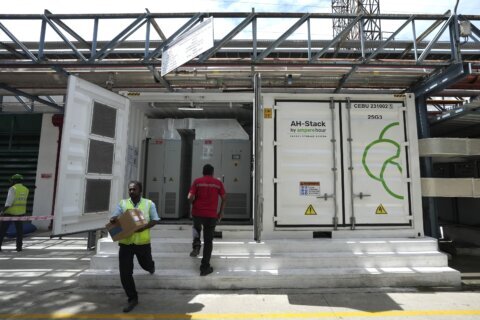A rent-to-own agreement can be an alluring option for aspiring homebuyers who don’t yet qualify for a mortgage.
But if you’re contemplating going through the rent-to-own process, you’ll want to tread carefully. There are a variety of pitfalls associated with rent-to-own agreements.
Here’s a primer on how rent-to-own deals work and potential risks to be wary of before you commit.
[Read: How to Get a Mortgage With No Down Payment. ]
What Is a Rent to Own Home?
A rent-to-own home is exactly what it sounds like: a two-step process in which you start off renting a place with the option to buy it later.
First, you rent a house with a lease agreement for a period of time, with some of your monthly payment going toward an eventual down payment. Once the lease expires, you have the option to purchase the property.
This is a strategy you might try in hopes that after several years of paying rent and saving for a down payment, a mortgage lender will find you a better credit risk.
How a Rent-to-Own Agreement Works
In a rent-to-own contract, individual homeowners typically enter an agreement with a real estate company for three years, with the option to extend a lease contract for four additional years. After those three years (or seven if you extend the contract), you would make payments to a mortgage lender instead of rent payments to a landlord.
A rent-to-own contract will include a lot of numbers, like your rent payment, the length of your lease, the time you have to buy the home, how much you will pay for the home when you’ve made the last rent payment and when you’ve made the last mortgage payment, potential rent credits and an option fee.
Here are some key things to know when considering a rent-to-own agreement:
— The option fee is an upfront cost that pays for the option to purchase the home. The option fee is between 1% and 7% of the home’s purchase price. It’s usually nonrefundable, but not all rent-to-own contracts require one. Option fees are also known as option money or option consideration.
— A rent credit is extra money you pay on top of the monthly rent. That extra money goes toward your eventual down payment to buy the house.
— The option fee and rent credit, in most cases (always check the contract), will be put in an escrow account and go toward your down payment.
Lease Option vs. Lease Purchase
You’ll hear both terms in discussions with lenders, but they don’t really mean the same thing.
— A lease option only obligates the seller to sell the home to the renter at the end by a specified time frame.
— A lease purchase agreement binds both parties to the home sale.
“The terms ‘lease option’ and ‘lease purchase’ are often used interchangeably, but there really are important differences between the two, and a renter needs to be very careful they enter the appropriate agreement for their needs,” says Brian Stivers, an investment advisor and the founder of Stivers Financial Services in Knoxville, Tennessee.
“A lease option simply commits the seller to sell the property to the renter at a specified price for a specified time. It doesn’t obligate the renter to purchase the home, but it does obligate the owner of the property to sell the home during the time frame of the option,” Stivers says. “The typical time frame is the end of the lease. Sometimes, it will be agreed upon to pay more than the market rent with the monthly difference in rent above the norm going towards the down payment of the home.”
So if you go with a lease option, and you aren’t locked into buying the home. But if you don’t purchase the house, you will be moving when that lease option period ends.
On the other hand, Stivers points out, if you sign a lease purchase agreement, you are expected to purchase the home at a certain price. No, you don’t have to move in, but you will likely pay a “substantial penalty for not doing so,” according to Stivers.
“It is common with both agreements for there to be a nonrefundable option fee as well,” he adds.
Benefits of Rent-to-Own for the Seller
It’s clear why renting to own a house can be a good thing for the buyer, who might not be able to purchase a home otherwise. But what’s in it for the seller?
“The landlord … gets their house rented, with a knowledge that they won’t have to pursue putting it on the market and look for a buyer after a certain period of time,” says Shea Adair, a Realtor and real estate investor in Cary, North Carolina.
“The cost alone to redo a house after a tenant and then market it to sell to a new buyer is costly,” he adds.
Basically if you’re renting your home but thinking of selling it, this can be a nice way to collect rental income for a while before selling.
It also might be a good idea if you’re a seller with a house that isn’t in demand — but you have one interested buyer who can’t swing the financing yet.
With renting to own, you have a buyer, eventually. The tradeoff is simply that it’s going to take a while before you actually sell the home.
How to Find Rent-to-Own-Homes
If you’re looking for rent-to-own homes, here are a few strategies for trying to find the right one.
— Talk to a real estate agent. Give a real estate agent a call and explain your situation. They may have ideas for you outside of rent-to-own agreements, but the agent may immediately think of clients who have struggled to sell their home and would be interested in the rent-to-own model. Some real estate agencies such as Coldwell Banker Realty and Century 21 have their own programs that offer rent-to-own homes.
— Search rent-to-own home websites. These include HousingList, RealtyStore or iRentToOwn.com.
— Suggest your idea to a seller. Depending how things go, you could suggest a rent-to-own plan to a home seller. This probably won’t go over so well if the homeowner has a bunch of interested buyers. But if the house has been on the market for a while, the homeowner might be interested.
— Suggest your idea to a landlord. If there’s a house for rent that you’d love to own, you could suggest a rent-to-own agreement to the landlord. The worst they can say is no.
[How to Find a Real Estate Agent]
What to Know Before You Buy a Rent-to-Own Home
If you are interested in buying a rent-to-own house, approach it from the mindset of a buyer and not a renter, says Jeff Falkowski, founder of House Report Card, which features reviews from prospective homebuyers.
How does a buyer think differently than a renter? Falkowski suggests getting a home appraisal and a title search of the home.
“It will cost from $400 to $600,” he says of an appraisal, “but is well worth the investment.”
After all, you’re going to buy the home — and more often that not, you are the one responsible for repairs while you’re renting the home. So you want to make sure you aren’t renting and then owning a complete disaster.
If you find some issues that need to be addressed, Falkowski suggests negotiating the price based on those repairs. “Or get it in writing that they will be financially responsible for fixing it. If they refuse to pay for the repairs, at least you know what you’re getting into and can decide if it’s still worth it,” he says.
A title search typically costs between $150 to $250, Falkowski says. It’s important to do one because you’ll quickly find out if the person you’re renting and then buying the house from has the right to sell the property or if there are any liens on the house.
“The owner of the house should understand you’re doing your due diligence on the property and should have no problems with any of these steps. If they are objecting and dragging their feet, that may in and of itself be a red flag,” Falkowski says.
You definitely want to be wary of the red flags. Rent to own is a perfectly smart way to purchase a home — but it can be a dangerous one, too, if you end up working with a shady home seller. That home seller could be on the brink of foreclosure. You could give the seller your option fee, move in and a few months later learn that the bank is taking possession of the house.
Considerations of Renting to Own a Home
While a rent-to-own agreement can be a wonderful thing for both parties, there’s a reason this isn’t something that’s done all the time: Even when both parties are ethical and upstanding citizens, it doesn’t always work out well.
Here are a number of factors that both parties — the seller and the buyer — should consider.
[READ: FHA First-Time Homebuyer Loans: What You Need to Know.]
Credit History Matters
Beyond being confident that a tenant can pay their rent, you’re going to need to have some confidence that lenders will believe they can pay a mortgage.
“If the tenant can’t get financing after the agreed-upon term, then you may have to evict them; otherwise they will simply be a lifelong tenant,” Adair says. “Another con for the landlord is you are locking in a future price, which could rise over time, and therefore you wouldn’t be able to take advantage of that appreciation. Also, landlords don’t receive large down payments, like a seller would with a straight home purchase.”
Rent Will Be Higher
If you’re on the buyer side in a rent-to-own agreement, the rent is often a little higher than what it would be for typical homes in the area. That’s because some of the rent is going toward a down payment. In the long run, that’s great, but if your budget is tight, higher rent payments may be a problem.
Breaking the Contract Comes With Consequences
Once it’s time to buy, you could decide to not make a purchase — maybe you need to move to another part of the country due to your job or your spouse’s job, for example. So if you don’t move into the home, you may lose your down payment money, depending how the contract is worded. You will definitely lose your option fee, and arguably that’s more than fair since the seller was counting on you buying the home.
You could also theoretically run into hard times and be unable to pay your rent — and then be evicted from your rent-to-own home. But that’s the type of risk anyone faces when living in a structure they don’t own.
The Home’s Price May Change
As Adair mentioned, an interesting thing about a rent-to-own home is that you’re agreeing upon the sale price of your home three to seven years before you actually buy the home, and so you’ll really want to take that into consideration.
For the buyer, “this can be an advantage if properties are rising in cost,” Stivers says. On the other hand, he points out, “The value of the home could decline during the option period.”
Taxes Are Paid By the Owners
It should be made clear in the contract that the property taxes due on the home are the responsibility of the owner of the house, and that would be the seller landlord and not the tenant buyer. Not until the lease purchase or lease option period is over, and the tenant actually starts making mortgage payments and not rent payments.
So there’s a lot to think about when it comes to renting to own a home, but if you do this right, working with people you trust and putting together a contract that spells everything out, you may soon find a house you can live in — and a homebuying strategy you can live with.
More from U.S. News
The 25 Best Affordable Places to Live in the U.S. in 2023-2024
How to Buy a House: A Step-by-Step Guide
Should You Move to the Suburbs Now?
Rent to Own 101 originally appeared on usnews.com
Update 06/02/23: This story was published at an earlier date and has been updated with new information.







